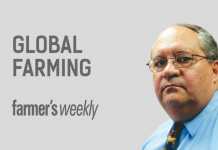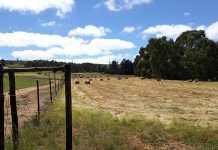Global economic growth accelerated slightly in the first quarter of 2013 to an annualised rate of 2,7%. In its April 2013 outlook, the International Monetary Fund (IMF) expected global growth to increase to 3,3% during 2013. However, it also indicated that this estimate was subject to high uncertainty. (IMF estimates of economic growth are shown in Figure 1.)
While there are clear indications of improved economic growth in many areas, the slow growth in developed countries impacts negatively on growth of demand for exports from developing countries. Economic growth in the developed world, meanwhile, remains dependent on fiscal intervention.
.jpg)
SA outlook
The Reserve Bank’s leading business cycle indicator increased for eight consecutive months to February 2013. It then decreased slightly in March 2013, indicating a possible slowdown in the SA economy in coming months. Economic growth was disappointing in the first quarter of 2013, with a dismal 0,9% annualised growth, down from 2,1% in the fourth quarter of 2012.
Consumption expenditure by households slowed down marginally from the fourth quarter of 2012 to the first quarter of 2013. Consumers are experiencing higher levels of financial stress as banks tighten their lending practices. The percentage of total consumer debt consisting of unsecured loans increased from 39% in 2007 to 46% in 2012. The change in the structure of consumer debt resulted in the Reserve Bank adjusting its debt-service cost to 7,7% of disposable income.
Debt service cost and expenditure on services have resulted in less money being available for expenditure on non-durable goods, as evinced by the 1,4% growth in the fourth quarter of 2013. Expenditure on communication, especially cellphone airtime, is a major expense for low-income groups and limits money available for food expenditure. Consumer price inflation remains below the Reserve Bank’s 6% target. Producer price inflation, usually an early indication of retail price inflation, also remains safely below 6%.
A high US maize crop and relatively favourable production of other grains will probably keep food inflation in check. The very weak rand has already resulted in higher fuel prices in spite of low global oil prices, and will also result in higher prices for imported goods in coming months.
Agriculture
By mid-July, 7,1 million tons of maize out of an estimated 11 million tons maize crop had been delivered. While farmers in the eastern parts of SA had reasonably good crops, yields in the western region vary, with some being disappointing. Moreover, global grain production during 2013/2014 is expected to exceed grain demand and will probably result in lower grain prices in the coming season.
Producers of export products, such as wool and fruit, benefited from the weak rand. Wool producers had one of the best seasons in many years, with an estimated 10,4% increase in production and a 26% increase in prices. Agricultural sectors vulnerable to imported products have not yet benefited from the weaker rand and higher global food prices. However, if the rand continues at current levels, imported livestock products will become more expensive, while the export opportunities for SA products will also improve. In addition, lower grain prices will result in cost savings, especially for intensive livestock industries.
Extensive livestock producers faced lower prices this year, mainly as result of the higher supply of animals from drought-stricken areas, but early spring rains may see a sudden decrease in supply of meat. Livestock producers can thus probably look forward to marginally better prices in 2014.
Negotiating inputs
The weak rand will also have a negative effect on farm profits. In some cases, opportunistic input suppliers may use the weaker rand as an excuse to increase prices of products that were manufactured with ingredients bought at much lower R/US$ exchange rates. Farmers will have to compare and negotiate input prices carefully to prevent their higher income from moving directly from their pockets into those of input suppliers.
Dr Koos Coetzee is an agricultural economist at the MPO. All opinions expressed are his own and do not reflect MPO policy. Email Dr Coetzee at [email protected] with ‘Global farming’ in the subject line.



